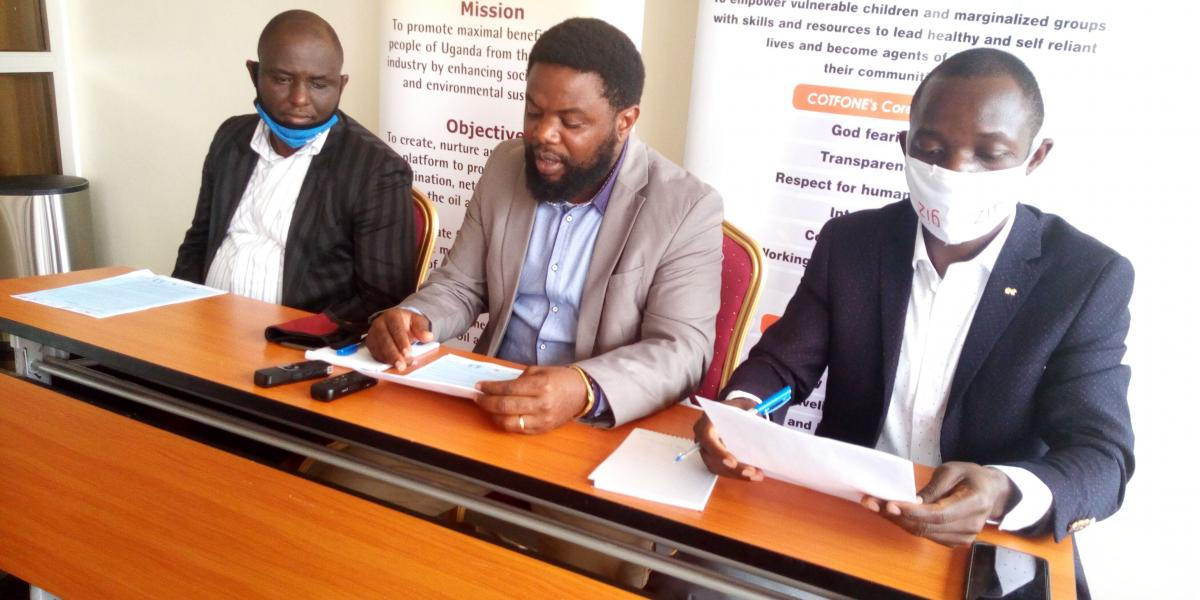- Home
- News & Information
- News
Uganda Admitted to the Extractive Industries Transparency Initiative
Posted on: 2020-08-13 00:00:00

On Wednesday the 12th of August 2020, the Extractive Industries Transparency Initiative (EITI) International Secretariat admitted the Republic of Uganda as the 54th member country of EITI. Uganda becomes the 26th African country to join the initiative. EITI is an international initiative that requires member countries and Companies to publish and reconcile data on oil, gas, and mining revenues as a mechanism for ensuring transparency, accountability, and subsequently proper management of revenues that accrue from natural resources. Uganda’s admission to EITI will benefit the country in various ways including; (i) promoting accountability by minimizing corruption and mismanagement of revenues from oil, gas, and mining; (ii)improving the revenue collection process and boosting public finances; and (iii) improving investment climate by giving a clear signal to investors and International Financial Institutions (IFIs) that the Government is committed to improving transparency among other benefits.
ACODE, together with the Civil Society Coalition on Oil and Gas in Uganda (CSCO), Global Rights Alert, Publish What You Pay - Uganda and partners would like to take this opportunity to congratulate the Government of Uganda upon admission to the Extractives Industry Transparency Initiative (EITI). This milestone is in tandem with Uganda’s National Oil and Gas Policy, 2008, and the Petroleum Revenue Management Policy, 2012 which committed the government to join EITI. We extend special gratitude to the Ministry of Finance, Planning and Economic Development (MFPED), the Ministry of Energy and Mineral Development (MEMD), and the Uganda EITI Secretariat and the EITI Multi-stakeholder Group who worked tirelessly to achieve this milestone. We also appreciate the efforts of different civil society organizations, the private sector, development partners, and other stakeholders towards this milestone.
As civil society, we commit to working with all other stakeholders to ensure that EITI is implemented successfully in Uganda.
In view of this landmark, we would like to draw the attention of government to the following issues:
1. The 2019 EITI standard requires the participation of women and marginalized groups in EITI processes to ensure that oil, gas, and mining operations are managed in an equitable manner.
2. The 2019 standard also encourages governments to integrate the impact of extractive operations on the environment in their EITI reports. By reporting on the impacts extractive companies are having on nature and biodiversity, Uganda will be able to achieve sustainable exploitation of natural resources.
3. Given the prevalence of illicit financial flows in other minerals and petroleum-rich countries, and the recent reports by the Office of the Auditor General with respect to the oil, gas, and mining subsectors, we call upon the government, through the implementation of EITI to plug all the loopholes that could be exploited by international oil, gas, and mining companies.
4. Oil, gas, and mining companies are also called upon to embrace this process and render the requisite cooperation and commitment towards the successful implementation of EITI in Uganda.
5. Finally, we call upon the government to ensure that the implementation of EITI in Uganda is inclusive and embraces diversity among relevant stakeholders to optimally benefit from Uganda’s membership to EITI.
PDF VersionMore News
Past Event
High-Level Policy Dialogue on the Budget
Press Release: Global Corporate Tax Deal – An African Perspective
GFI & ACODE Evaluate the Key Elements, Opportunities, and Challenges of the OECD/G20 Tax Deal
Speech by Mr Emmanuel Tumusiime-Mutebile, Governor of the Bank of Uganda, at ACODE Dialogue on 25 February 2015
The impact of oil price volatility and its implications for the economy and for macroeconomic stability
Press Release
Press Statement on the Key Outcomes of COP 28
